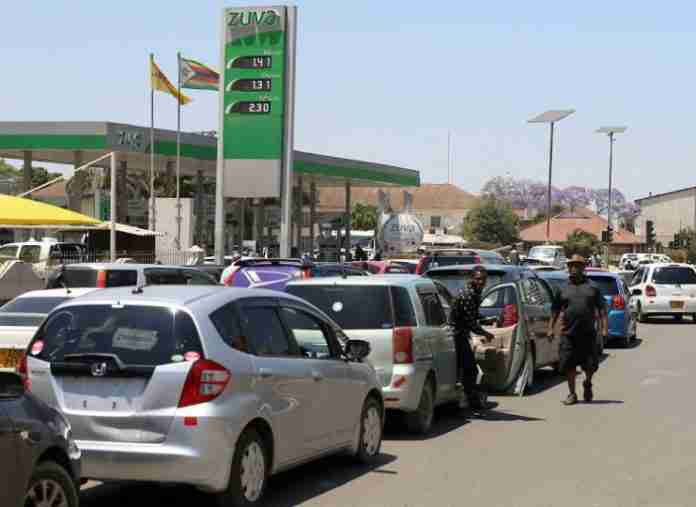
PETROLEUM industry players this week warned consumers to brace for price hikes, following government’s shock move last Friday to impose a new levy on fuel imports.
They spoke as economists said inflation rates were likely to spiral as the US$0,005 per litre levy comes into effect, dealing a blow to current efforts to stem volatilities.
The Direct Fuel Importers (DFI) said it would pass on the burden to consumers.
The levy was announced through Statutory Instrument 168 of 2024.
There were also concerns that the new policy would trigger surges in the cost of doing business, in a country already rated among the most difficult to invest in due to high overheads.
Douglas Runyowa, chief director in the Ministry of Industry and Commerce, told this newspaper that the high costs were among several concerns raised against Zimbabwe’s ambition to compete in the African Continental Free Trade Area.
Prior to the introduction of the levy, a litre of fuel and diesel cost about US$1,49 and US$1,50 respectively.
DFI secretary general Bart Mukucha told the Zimbabwe Independent that while the levy would help government carry out its projects, hard pressed consumers would bear the brunt.
- Bleeding govt inflicts fresh pain on consumers
Keep Reading
“The government makes more revenue because they have this additional tax head,” Mukucha told the Independent.
“But this can lower volumes. Prices obviously will have to go up,” he said.
“However, further downstream, this has an impact of constricting the economy because people will now be restricted from travelling due to price increases. As an industry we just have to deliver
To Page 2
the product. Consumers then make the choice to buy or not to buy. It is their choice to reduce their consumption or to increase.”
The latest levy comes on the back of a series of new taxes, along with sharp hikes in fees charged by government agencies, which were introduced by Finance minister Mthuli Ncube in the 2024 national budget.
Treasury proposed to introduce new taxes to raise nearly ZW$10 trillion (US$1,7 billion) in additional revenue to fund its operations.
It also raised certain fuel levies, tollgate and passport fees, presumptive taxes and car registration charges, among others.
The new fuel levy, which will be collectable upon importation, would be channelled towards strengthening compliance to regulations in the petroleum industry.
Mukucha said the price of fuel on the global market had been decreasing.
“What has been happening is that fuel prices have been going down because of the war in Ukraine. Prices have gone down on the global market because there is cheaper Russian fuel on the market.”
In neighbouring South Africa, the price of fuel was priced at an average of US$1,55 per litre.
On average, Zimbabwe imports a combined 200 million litres of diesel and petrol per month.
Economist, Prosper Chitambara said the levy would increase the cost of doing business in Zimbabwe, thereby reducing the southern African country’s competitiveness.
“The levy obviously is adding another layer (of cost to other existing) levies and taxes and duties on the fuel value chain as a whole,” Chitambara said.
“That obviously has contributed to Zimbabwe's fuel being one of the most expensive on the African continent, which affects our competitiveness,” he said.
With Zimbabwe gripped by crippling power cuts, which have forced companies to run on generators, Chitambara said the levy would further balloon the cost of doing business.
“If the cost of fuel is high it affects and weakens our competitiveness, and more so now when most businesses are relying on generators. So that is an added cost to businesses.”
Stevenson Dhlamini an economist and lecturer at National University of Zimbabwe (Nust) projected that the new fuel levy would marginally increase the prices of goods.
“Probably it may marginally increase the price of fuel, which might translate to a marginal increase in inflation because fuel is extra liquid for distribution, trade. It might marginally increase prices of fuel and prices of basic commodities like bread and other basic commodities and we might experience a marginal increase in food related inflation,” Dhlamini said.
“The negative impact on production, especially in the manufacturing sector, would lie largely on fuel as a critical input. So, it might also increase the cost of doing business, which might negatively impact the productivity of the manufacturing sector,” he said.
Zimbabwe’s month on month inflation stands at about 6%.






